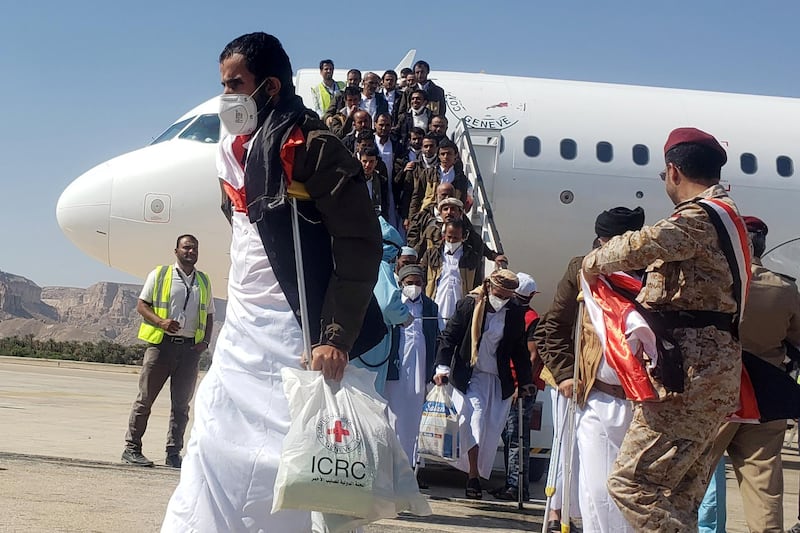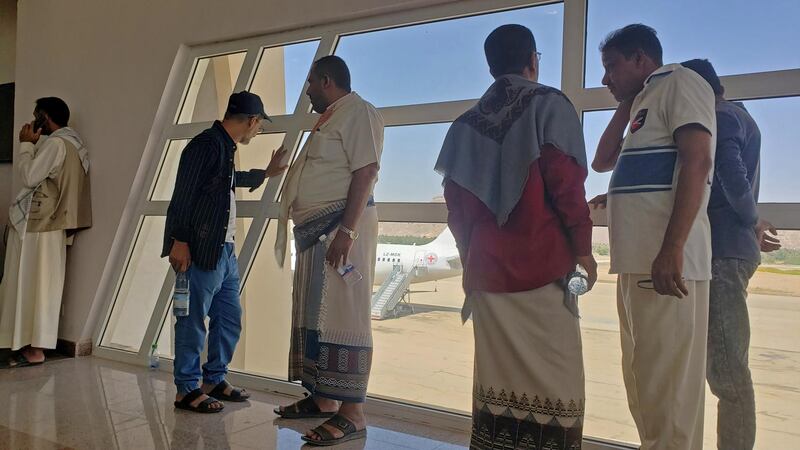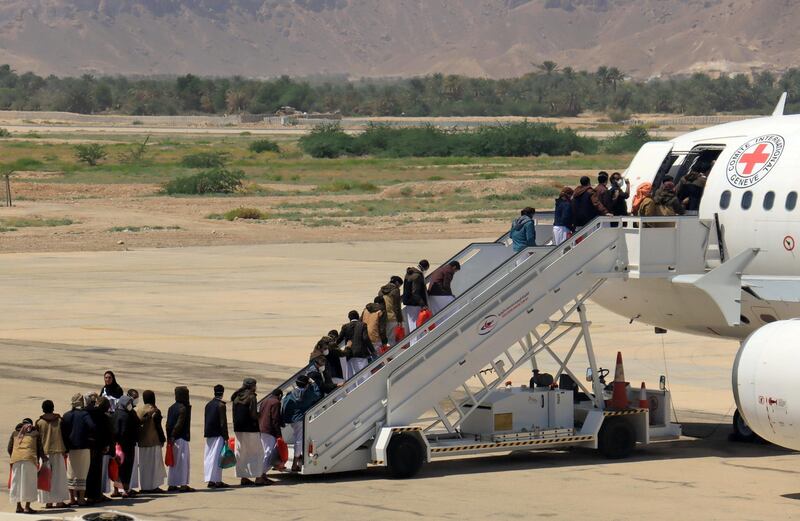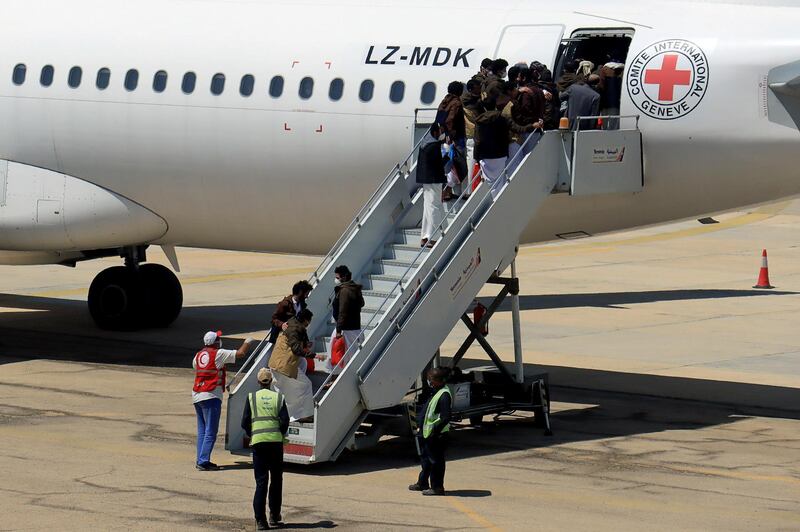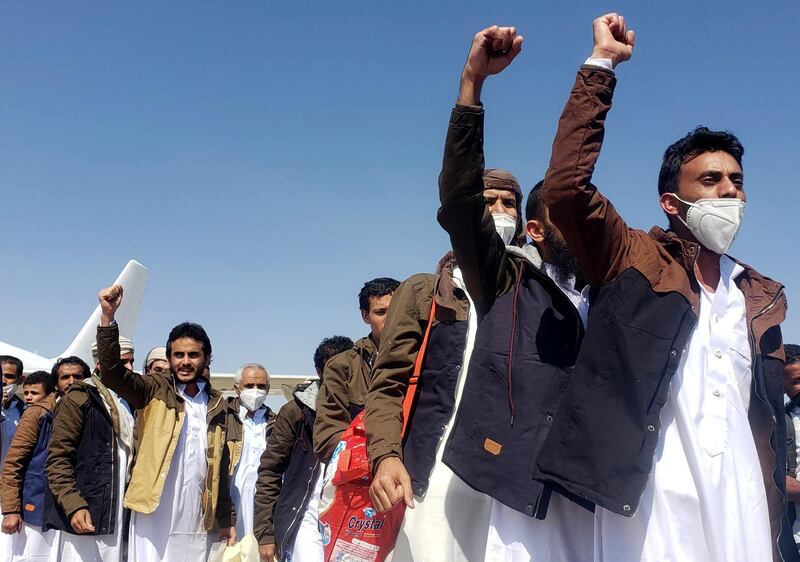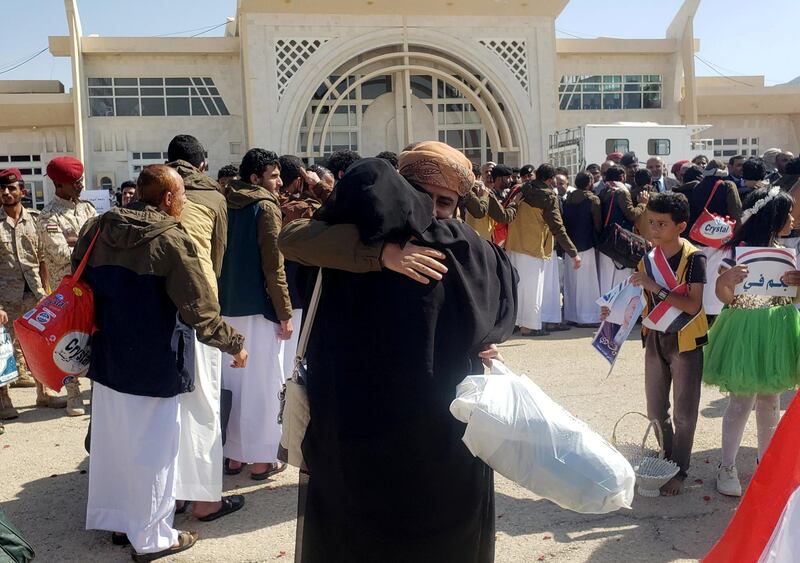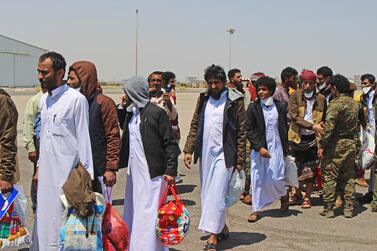Friday October 10, 2020, was supposed to be a special day for Rashad Al Raee, 65, and his wife. It was the day in which they would finally see their only son Mohammed, who was injured and detained by Houthi rebels in August 2018.
Mohammed was one of more than 1,000 prisoners exchanged between Yemen’s government and Houthi rebels in October 2020, following a landmark, UN-brokered prisoner swap.
Following this news, Mr Al Raee and his wife made their way to Aden airport accompanied by eight cars carrying Mohammed’s cousins and friends, who attended to celebrate his return.
At the airport, Mr Al Raee and his wife waited anxiously, staring into faces of prisoners' leaving the arrivals hall, but they could not see their beloved son.
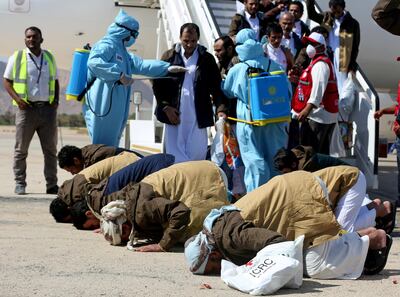
"We kept waiting for him where the families of the released prisoners gathered to receive their loved ones. The prisoners were transferred out of the airport in groups. Many passed us by and Mohammed wasn't among them. My heart was beating very strongly. I felt that something was going wrong because the majority of the prisoners left and my son didn't appear," Mr Al Raee told The National.
“Eventually, I saw a soldier who used to serve with Mohammed, he was driving a military car leaving the airport. I asked him desperately about the whereabouts of my son. He told me that Mohammed was taken by an ambulance to the Aden-German International Hospital because he passed out while in transit,” Mr Al Raee said.
“The world went dark in my eyes” he said.
“We drove to the hospital, where we found him lying motionless, like a ghost who doesn’t feel anything. It was clear that Mohammed had lost his memory because he reacted like a statue while I and his mother were hugging him and crying over him. He didn’t remember anything. He kept gazing at the wall before him silently.”
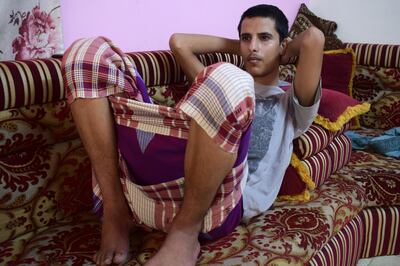
Mr Al Raee said that he was informed by prisoners detained with his son that the Houthis repeatedly tortured him after he resisted their ill-treatment.
“The Houthis left him bleeding, and whenever he appealed for treatment they gave him a sedative injection so he slept. They did that whenever he awoke, screaming in pain,” Mr Al Raee said, citing the account of a prisoner detained with his son.
Mr Al Raee said that a prisoner detained with Mohammed told him that the Houthis moved his son to solitary confinement in the last three months of his captivity, after he repeatedly resisted their attempts to subdue him.
He cited a psychiatrist who has been treating his son, who said he was subjected to an overdose of sedatives, in addition to ill-treatment that included isolation. The latter may have impaired Mohammed’s memory, causing psychological complications.
A bleeding wound
Mohammed’s father and mother cried day and night waiting for their only son to get back to them, but his return did not put an end to their suffering.
“I have been preparing for his engagement. I collected his salary and built a small apartment for him. I was waiting for him to come back from his duty to celebrate his engagement, but all my plans were turned upside down,” Mr Al Raee said with tears in his eyes.
“I feel extremely devastated when I see him and see his mother crying over his head day and night. His condition turned our life into hell."
The struggle for normality
Although he does not remember them, Mohammed’s friends try to keep him company. They visit him on a daily basis and regularly take him out to the sea, attempting to revive his memory and help him get back to normal.
“Mohammed was very kind and helpful. He was a very good man. Everybody knows him for his good deeds. He used to be very social and supportive. Everybody knows him for his good values,” friend Muneef Ali said.
Mohammed’s father and friends appealed to international organisations, including the International Committee of the Red Crescent, to investigate why Mohammed, and many other prisoners recently released from Houthi prisons, suffer physical and psychological complications.
In October 2020 the Yemeni government called for the UN and Red Cross to conduct medical checks on freed prisoners and investigate their accounts of mistreatment by the rebels.
Information Minister Muammar Al Eryani also demanded a “swift, transparent and just investigation” into the deaths of prisoners in Houthi detention, the government’s Saba news agency reported.
Despite these outstanding issues, the prisoner exchange was hailed by some observers as a landmark event in the conflict, potentially paving the way for de-escalation. But for prisoners like Mohammed, who now need specialist care, a new and silent war is only just beginning.
